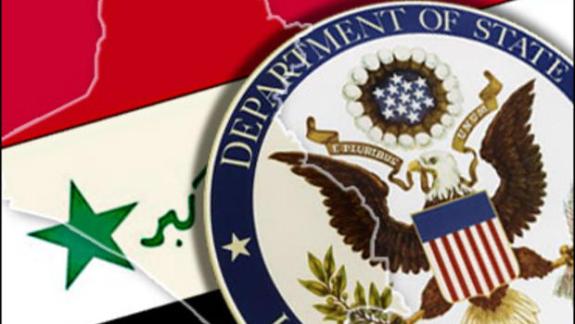* My final good-bye email to my friends and co-workers at the U.S. Embassy in Baghdad.
Greetings,
You’re busy. Let me get right to it.
Wednesday March 7 will be my last day at the office.
I’m writing this email with a schizophrenic feeling. It feels like I’m divorcing someone I love. My mind is numb, and my heart full of trepidation from uncertainty, a difficult presentiment to express with adjectives. It has been more than six years and four months since that call. It was around 7:15 on a below zero Monday morning in December 2011.
I was on the Red Line train going to work in Downtown Chicago when I got a call – a call that would change my life. I was a senior programmer for Accenture Corp. working on cutting edge processes for the health care system of America. On the other end of the phone someone was offering me a job at one of the front lines of American foreign policy – the U.S. Embassy in Baghdad. But with one caveat, if I accepted it I had to leave the next day. With 30 seconds to make a life changing decision, I decided to embark on a risky adventure. I arrived at work, cleaned out my desk, and submitted my resignation.

After six Christmases and six New Year’s Eves living a sequestered life between T-walls, ensconced in my palatial CHU (compartmentalized housing unit with handbook), rusticating in the BDSC wilderness, I have arrived at the finish line of my tour de Irak.
To resign and bounce back from such a prestigious job and go back to the unknown that’s awaiting in America, to go from somebody to nobody, is scary.
Thinking about the finitude of my life kept me questioning how many years I should stay here. I’ve spent my 30s in Iraq, and with every day of my 40s that passes, it is becoming increasingly important to spend my life among my Assyrian community, my relatives, and my aging parents. There is no mathematical formula to calculate these types of sacrifices.
However, I’ve learned a lot during all these years in Iraq. I’ve become an autodidact, read more than 300 books and travelled to many countries. As well as started to blog about my personal thoughts and life at www.Ninos.Blog, and to share my political and cultural views at www.CoffeeShopPolitics.com , and wrote an introduction for (maybe one day in the future) my book, “The Longest Bridge”.
But the greatest skills I have acquired are people skills. I met a lot of people with different nationalities, backgrounds, personalities, and characters. Some, I keep in touch with. Others, I forgot them the moment we parted ways. Only a few made me scratch my head and wonder how America ever became great with these people working in it.
Having survived the entire duration of my employment without being culled with a sickle from the workplace, because I’ve rubbed someone the wrong way, disturbed the ingratiating dynamic, said something wrong, or just for being unlikeable, I consider one of the greatest successes in my professional career. In thorny reality, we don’t own our reputation. If we speak to 25 people, we will have 25 reputations. Thus, managing co-worker relationships, massaging egos, maneuvering between difficult characters, is a priceless skill. I consider myself graduated from the Harvard of Relationship Management.
As I’m writing these lines, I remember Seneca’s 2000 year old wisdom. He said, “We suffer more often in imagination than in reality.” As I passed the age of 40, the uncertainty of finding the next job, and leaving a semi-secure income with a feeling of false stability is a risk I never thought I would face. But to grow in life, we must face our fear. I’ve decided to face my fear.
It’s March 2018 I haven’t received a phone call for another job opportunity. But just like the stress of the weights build my muscles at the gym, the stress of the unknown will help me re-invent myself.
A few years left in my 40s, and I look forward to the coming years and what they may teach me as I write the next chapter of my life.
The Iraqi culture taught me to leave a redolent fragrance when I leave a place, and I believe I have done just that.
Thank you SSI. Thank you RSO office. Thank U.S. Embassy Baghdad.
Good luck with the mission!
P.S. If you find yourself passing through Chicago and invited to one of those middle eastern cabarets for a few drinks, talk about the cultural battlegrounds between the average Joe and the average Mohammed. Here is a prologue to that:
http://coffeeshoppolitics.com/2016/02/16/cultural-differences-between-iraq-and-america/













